

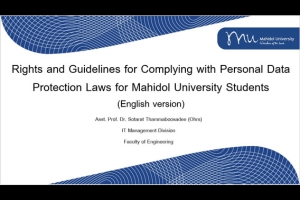 The objective of this course is to augment the comprehension and awareness of international students regarding the tenets of the Personal Data Protection Act (PDPA) that hold significance for them. The course will cover areas such as the extent and classifications of personal data, legal foundations, pivot legal rights, privacy notification pertinent to students, and essential student rights and optimal approaches.
The objective of this course is to augment the comprehension and awareness of international students regarding the tenets of the Personal Data Protection Act (PDPA) that hold significance for them. The course will cover areas such as the extent and classifications of personal data, legal foundations, pivot legal rights, privacy notification pertinent to students, and essential student rights and optimal approaches.
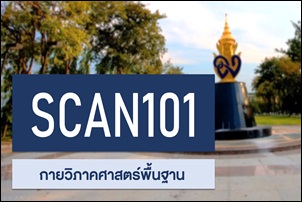 The basic concept of living cells, organs and systems of human body. The relationship of human structures and functions is emphasized. The human skeleton and cadavers are utilized in the laboratory study.
The basic concept of living cells, organs and systems of human body. The relationship of human structures and functions is emphasized. The human skeleton and cadavers are utilized in the laboratory study.
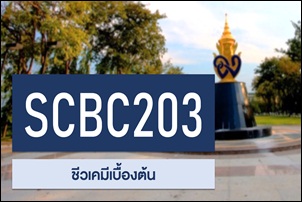 Structures and functions of 4 biomolecules, carbohydrate, lipid, protein and nucleic acid; metabolic processes and regulation of metabolic pathways of 4 biomolecules; flow of genetic information and gene regulation; DNA technology; role of biomelecules in normal physiological systems with some medical applications.
Structures and functions of 4 biomolecules, carbohydrate, lipid, protein and nucleic acid; metabolic processes and regulation of metabolic pathways of 4 biomolecules; flow of genetic information and gene regulation; DNA technology; role of biomelecules in normal physiological systems with some medical applications.
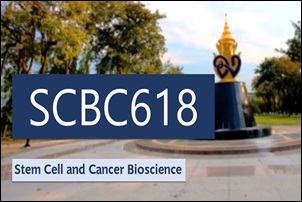 Frontier bioscience in stem cells and cancers; concept of regenerative medicine, advances in cancer biomarkers; in-depth knowledge of cancer signaling, tumor angiogenesis, metastasis, cancer stem cells and cancer immunology and immunotherapy.
Frontier bioscience in stem cells and cancers; concept of regenerative medicine, advances in cancer biomarkers; in-depth knowledge of cancer signaling, tumor angiogenesis, metastasis, cancer stem cells and cancer immunology and immunotherapy.
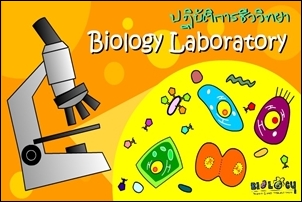 Microscopy, cell structure and function, plant and animal tissues; cell division, genetics and natural selection, ecology, and behavior.
Microscopy, cell structure and function, plant and animal tissues; cell division, genetics and natural selection, ecology, and behavior.
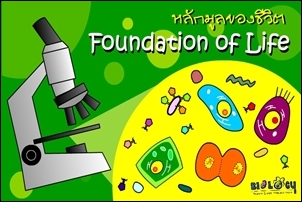 Systematic classification of living organisms; reproduction and development in human and animals; comparative physiology of organ systems in human and animals, diseases and abnormalities, including nervous system, receptor and motor system, digestive system, endocrine system, gas exchange and excretory system, circulatory system and immune system; and basic biology laboratories.
Systematic classification of living organisms; reproduction and development in human and animals; comparative physiology of organ systems in human and animals, diseases and abnormalities, including nervous system, receptor and motor system, digestive system, endocrine system, gas exchange and excretory system, circulatory system and immune system; and basic biology laboratories.
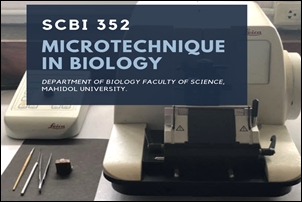 Theory and practice of preparing plants and animals for microscopic examination; general routines of the preparation of tissue such as fixation and dehydration, sectioning with microtome and staining of sections, microanatomy and chemical composition of some tissues.
Theory and practice of preparing plants and animals for microscopic examination; general routines of the preparation of tissue such as fixation and dehydration, sectioning with microtome and staining of sections, microanatomy and chemical composition of some tissues.
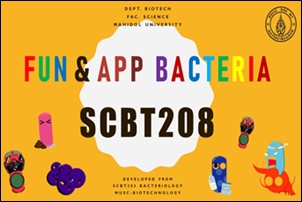 Microbiological fundamentals of bacteria regarding structure and functions, nutrient, growth, death, and control, as well as the importance and the application of major groups of bac-teria; laboratory experiments on studying of bacteria by microscopes, staining, aseptic technique; preparation of media, isolation of pure culture, selection, classification and identification, culture, quantifying, and preservation of bacteria, and also safety in laboratory; collaborative thinking, ethics, IT skill, creative thinking and planning.
Microbiological fundamentals of bacteria regarding structure and functions, nutrient, growth, death, and control, as well as the importance and the application of major groups of bac-teria; laboratory experiments on studying of bacteria by microscopes, staining, aseptic technique; preparation of media, isolation of pure culture, selection, classification and identification, culture, quantifying, and preservation of bacteria, and also safety in laboratory; collaborative thinking, ethics, IT skill, creative thinking and planning.
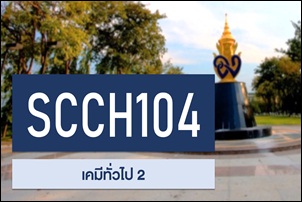 Chemical thermodynamics; chemical kinetics; chemical equilibrium; ionic equilibrium; electrochemistry; gas, liquid, and solid
Chemical thermodynamics; chemical kinetics; chemical equilibrium; ionic equilibrium; electrochemistry; gas, liquid, and solid
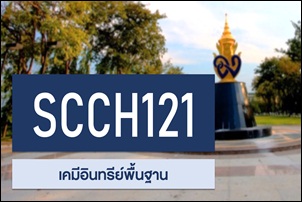 Molecular structure and general properties of organic compounds; classification and nomenclature of organic compounds with various functional groups; stereochemistry: stereoisomers and their optical activities; synthesis, reactions and identification of alkanes, alkenes, alkynes, aromatic hydrocarbons, halides or organohalogens, alcohols, phenols, ethers, aldehydes, ketones, carboxylic acids, carboxylic acid derivatives and amines; Molecular structure and properties of biomolecules: carbohydrates, proteins, and lipids.
Molecular structure and general properties of organic compounds; classification and nomenclature of organic compounds with various functional groups; stereochemistry: stereoisomers and their optical activities; synthesis, reactions and identification of alkanes, alkenes, alkynes, aromatic hydrocarbons, halides or organohalogens, alcohols, phenols, ethers, aldehydes, ketones, carboxylic acids, carboxylic acid derivatives and amines; Molecular structure and properties of biomolecules: carbohydrates, proteins, and lipids.
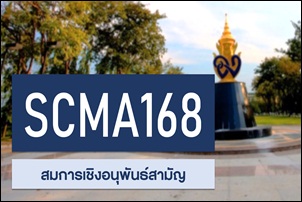 Introduction to ordinary differential equations; linear first order differential equations; nonlinear first order differential equations; applications of first order equations; second order linear equations; applications of second order equations; higher order linearequations; systems of linear equations; matrices; determinants.
Introduction to ordinary differential equations; linear first order differential equations; nonlinear first order differential equations; applications of first order equations; second order linear equations; applications of second order equations; higher order linearequations; systems of linear equations; matrices; determinants.
 Fundamentals of mathematical structures; introductory logic; symbolic logic; mathematical proofs, application of definitions, axioms, theorems and assumptions to reasoning; proofs of simple statements; proofs of compound statements; proofs of statements with quantifiers; proofs by cases; proofs by contradiction; proofs by contraposition; proofs by mathematical induction and strong mathematical induction; proofs of existence and uniqueness; examples of mathematical proofs on sets, relations, and functions; equivalence relations; elementary number theory including division algorithm, greatest common divisors, and the fundamental theorem of arithmetic; introduction to countable and uncountable sets.
Fundamentals of mathematical structures; introductory logic; symbolic logic; mathematical proofs, application of definitions, axioms, theorems and assumptions to reasoning; proofs of simple statements; proofs of compound statements; proofs of statements with quantifiers; proofs by cases; proofs by contradiction; proofs by contraposition; proofs by mathematical induction and strong mathematical induction; proofs of existence and uniqueness; examples of mathematical proofs on sets, relations, and functions; equivalence relations; elementary number theory including division algorithm, greatest common divisors, and the fundamental theorem of arithmetic; introduction to countable and uncountable sets.
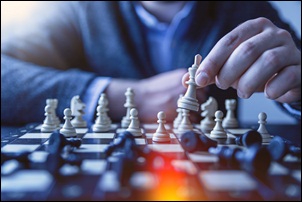 Matrix games; extensive forms; game trees; mixed strategies; dominating strategies; bimatrix games; normal forms; the Nash equilibrium; repeated games.
Matrix games; extensive forms; game trees; mixed strategies; dominating strategies; bimatrix games; normal forms; the Nash equilibrium; repeated games.
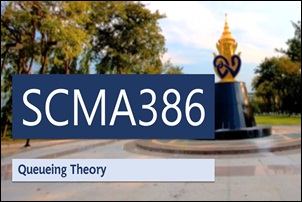 Queuing models; probability distributions of interarrival times; probability distributions of service times; the single server model with the Poisson input and exponential service; the multiple server model with the Poisson input and exponential service; the birth and death process; other queuing models.
Queuing models; probability distributions of interarrival times; probability distributions of service times; the single server model with the Poisson input and exponential service; the multiple server model with the Poisson input and exponential service; the birth and death process; other queuing models.
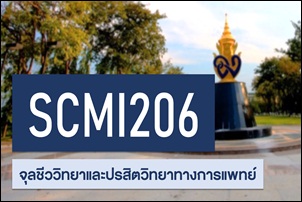 Introduction to the basic principle of immunology, microbiology and parasitology including morphology and growth of microorganisms and parasites, methods of microbial genes transfer and drug resistant genes transfer, role of microorganisms in nature, sterile techniques, pathogenicity of microorganisms and parasites, host immune responses, medically important parasites, basic laboratory tests to detect microorganisms, virus, and parasites.
Introduction to the basic principle of immunology, microbiology and parasitology including morphology and growth of microorganisms and parasites, methods of microbial genes transfer and drug resistant genes transfer, role of microorganisms in nature, sterile techniques, pathogenicity of microorganisms and parasites, host immune responses, medically important parasites, basic laboratory tests to detect microorganisms, virus, and parasites.
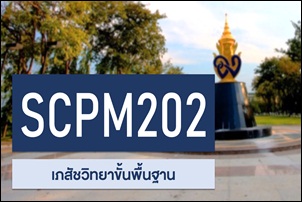 Principle of drug action; pharmacokinetics; pharmacodynamics; autonomic drugs; drugs used in cardiovascular and renal system; drugs used in central nervous system; respiratory system; gastro-intestinal system; endocrine and reproductive system; antibiotics; cancer chemotherapy; drugs used in dermatology; vitamin.
Principle of drug action; pharmacokinetics; pharmacodynamics; autonomic drugs; drugs used in cardiovascular and renal system; drugs used in central nervous system; respiratory system; gastro-intestinal system; endocrine and reproductive system; antibiotics; cancer chemotherapy; drugs used in dermatology; vitamin.
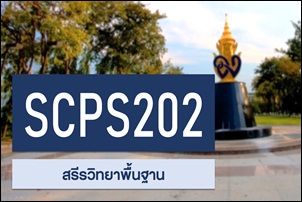 Basic concepts and principles of cell functions and the functions of various organ systems in the body. These include nervous, muscular, cardiovascular, respiratory, renal, gastrointestinal tract, endocrine and reproductive systems as well as temperature regulation; the mechanisms of the regulation of the organ system integration and adaptations in order to keep the body in a homeostatic state.
Basic concepts and principles of cell functions and the functions of various organ systems in the body. These include nervous, muscular, cardiovascular, respiratory, renal, gastrointestinal tract, endocrine and reproductive systems as well as temperature regulation; the mechanisms of the regulation of the organ system integration and adaptations in order to keep the body in a homeostatic state.
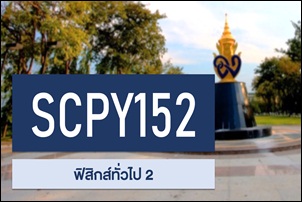 Nature of light, polarization, reflection and refraction, images forming from reflected and refracted light, lens and optical instruments, interference and diffraction of light, special relativity, relativistic speed, relativistic momentum and energy, duality of particle and wave, particle wave mechanics by Schrodinger, examples of particle waves, wave packet and Heisenberg’s uncertainty principle, basic of quantum mechanics, angular momentum and spin, physics of atoms and molecules, crystalline solids and energy band theory, semi-conducting materials, LASER and MASER, NANO technology, semiconductor electronics, nature of the atomic nucleus, decay processes, nuclear models, nuclear radiations, nuclear reactions, detection of radiation and protection, nuclear applications and physics of elementary particles.
Nature of light, polarization, reflection and refraction, images forming from reflected and refracted light, lens and optical instruments, interference and diffraction of light, special relativity, relativistic speed, relativistic momentum and energy, duality of particle and wave, particle wave mechanics by Schrodinger, examples of particle waves, wave packet and Heisenberg’s uncertainty principle, basic of quantum mechanics, angular momentum and spin, physics of atoms and molecules, crystalline solids and energy band theory, semi-conducting materials, LASER and MASER, NANO technology, semiconductor electronics, nature of the atomic nucleus, decay processes, nuclear models, nuclear radiations, nuclear reactions, detection of radiation and protection, nuclear applications and physics of elementary particles.
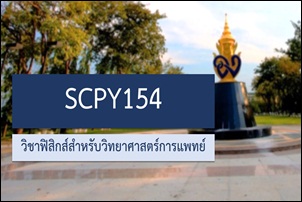 Mechanics, Thermodynamics, Physicals Optics, Electromagnetism, Special theory of relativity, Quantum mechanics, Atomic physics, Nuclear physics, Particle physics.
Mechanics, Thermodynamics, Physicals Optics, Electromagnetism, Special theory of relativity, Quantum mechanics, Atomic physics, Nuclear physics, Particle physics.
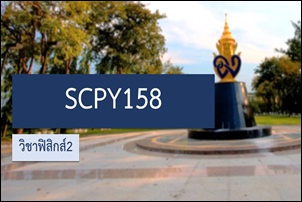 Electricity and magnetism, DC circuits, AC circuits, electromagnetic field; theory of relativity; quantum mechanics; atomic physics; nuclear physics.
Electricity and magnetism, DC circuits, AC circuits, electromagnetic field; theory of relativity; quantum mechanics; atomic physics; nuclear physics.
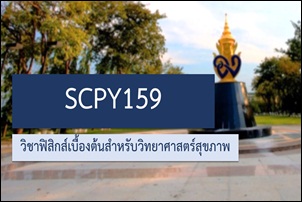 Mechanics of motion and equilibrium, work and energy, elastic properties of matters, fluid mechanics and blood circulatory system, temperature, heat, gas law and respiratory system, waves and wave properties, ears and hearing, lights and vision, electricity, magnetism, electricity in human body, electronics, atoms, nuclei and nuclear medicine.
Mechanics of motion and equilibrium, work and energy, elastic properties of matters, fluid mechanics and blood circulatory system, temperature, heat, gas law and respiratory system, waves and wave properties, ears and hearing, lights and vision, electricity, magnetism, electricity in human body, electronics, atoms, nuclei and nuclear medicine.
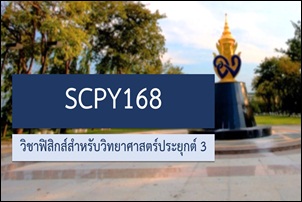 Mechanics of motion and equilibrium, work and energy, elastic properties of matters, fluid mechanics and blood circulatory system, temperature, heat, gas law and respiratory system, waves and wave properties, ears and hearing, lights and vision, electricity, magnetism, electricity in human body, electronics, atoms, nuclei and nuclear medicine.
Mechanics of motion and equilibrium, work and energy, elastic properties of matters, fluid mechanics and blood circulatory system, temperature, heat, gas law and respiratory system, waves and wave properties, ears and hearing, lights and vision, electricity, magnetism, electricity in human body, electronics, atoms, nuclei and nuclear medicine.
 It is a for-profit social enterprise dedicated to making it possible for anyone, to study anything, anywhere, at any time, for free online, at any subject level.
It is a for-profit social enterprise dedicated to making it possible for anyone, to study anything, anywhere, at any time, for free online, at any subject level.
 Open, Online learning as defined by you. Canvas Network offers open, online courses taught by educators everywhere.
Open, Online learning as defined by you. Canvas Network offers open, online courses taught by educators everywhere.
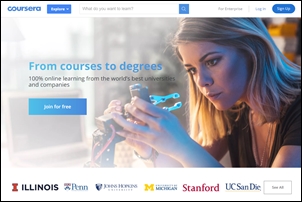 Coursera provides universal access to the world’s best education, partnering with top universities and organizations to offer courses online.
Coursera provides universal access to the world’s best education, partnering with top universities and organizations to offer courses online.
 Offering the best in education to the world. Access to free education for everyone. Learn from the best. Anytime. Anywhere.
Offering the best in education to the world. Access to free education for everyone. Learn from the best. Anytime. Anywhere.
 Improve your Google search skills with our Power Searching and Advanced Power Searching online courses.
Improve your Google search skills with our Power Searching and Advanced Power Searching online courses.
 Free online courses from inspiring professors. Top European Universities. You can now earn a verified certificate and European Credit points.
Free online courses from inspiring professors. Top European Universities. You can now earn a verified certificate and European Credit points.
 Keep learning in the moments that matter. Courses for every step of your career. Instructors with real-world experience.
Keep learning in the moments that matter. Courses for every step of your career. Instructors with real-world experience.
 Learn together. NovoEd delivers effective and engaging online training with our social learning platform.
Learn together. NovoEd delivers effective and engaging online training with our social learning platform.
 Saylor Academy provides free and open online courses and affordable college credit opportunities to learners everywhere.
Saylor Academy provides free and open online courses and affordable college credit opportunities to learners everywhere.
 TED-Ed is TED's youth and education initiative. TED-Ed's mission is to spark and celebrate the ideas of teachers and students around the world.
TED-Ed is TED's youth and education initiative. TED-Ed's mission is to spark and celebrate the ideas of teachers and students around the world.